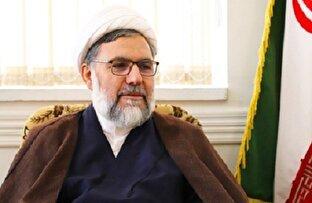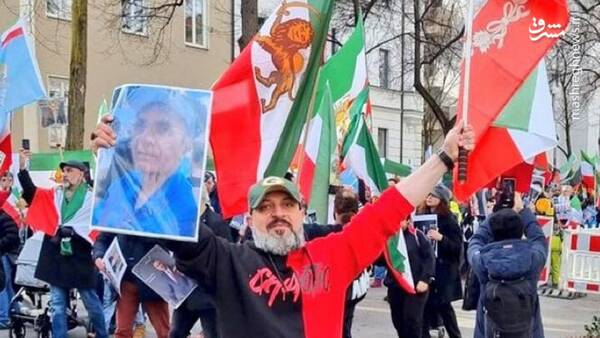Trump's UN-backed 'peace plan' is the fulfilment of a 200-year-old colonial dream
Trump's UN-backed 'peace plan' is the fulfilment of a 200-year-old colonial dream

The adoption of US President Donald Trump's so-called "peace plan" for Gaza by the United Nations Security Council has been widely described as christening the US, if not Trump personally, as the new colonial master of the land and its people.
Trump first announced his designs for Gaza last February, when he proposed a full US takeover of the Strip as an investment venture.
That plan envisioned the expulsion of the entire Palestinian population in order to transform Gaza into the "Riviera of the Middle East", a blueprint that even the pro-Israel CNN dubbed "colonialism for the 21st century".
After international condemnation, senior US officials walked back only its most explicit terms, insisting there would be "no boots on the ground" and that any population transfer would be merely "temporary".
Trump himself, however, quickly reaffirmed the scheme, reportedly "doubling down" on imposing American control over Gaza.
Months later, his new UN mandate continues and reiterates his original proposal under the guise of a "peace plan".
The installation of the US as the new colonial master of Gaza's Palestinians has garnered not only the active support of Arab and Muslim regimes that serve as US agents, and of the collaborationist Palestinian Authority, but also the former settler-colony of Algeria, whose regime seems eager to join the club of US client states in the Arab world.
It also appears that Russia and China, which abstained from the UN vote, could not care less about the Palestinians.
Yet this latest arrangement is hardly unprecedented. It continues a longstanding American effort to colonise the land of the Palestinians, a project whose origins go back to the early 19th century.
American crusades
American missionaries were dispatched to Palestine as early as 1821 but remained only until 1844, when competition from British Protestant missions rendered their presence redundant and led them to relocate to Syria and Lebanon.
In tandem with revived European Christian plans to reconquer Palestine in the early part of the 19th century, American Protestant millenarians joined what became known as the "Peaceful Crusade", establishing farming colonies in Jaffa while awaiting Christ's Second Coming.
The Palestinians opposed the colonists, prompting the Ottomans to protest to the US minister that 'the natives' were being driven 'from their fields by a colony of Yankees'
They sought to convert the few thousand religious Lithuanian Jews who had recently emigrated to Palestine in anticipation of the Messiah and to teach them farming, though they found them "lazy" and resistant to conversion.
A group of American Seventh-day Adventists (Millerites) settled in Bethlehem in 1851, alongside European Christian settlers in the nearby village of Artas. They later moved to Jaffa, where they founded the short-lived "Mount Hope" colony.
Another group of colonists, the Dicksons, established the "American Mission Colony" in Jaffa in 1854, which faced local Palestinian resistance. After the colony was attacked in 1858, killing several members, the survivors were repatriated to Massachusetts. In response, the US dispatched the frigate USS Wabash to the shores of Palestine to pressure the Ottomans into prosecuting the assailants.
In 1866, a band of American millenarian artisans and farmers arrived from Maine to establish yet another colony in Jaffa.
The Adams Colony - named after its fanatical evangelical leader, the former Mormon George Washington Joshua Adams - began with 156 members, but it did not last long. Adams met with President Andrew Jackson, requesting that he intervene with the Ottomans in support of American settler-colonial efforts, comparing the colonisation of Palestine to that of the US.
The Palestinians opposed the colonists, prompting the Ottomans to protest to the US minister in Constantinople that "the natives" were being driven "from their fields by a colony of Yankees".
Follow Middle East Eye's live coverage of Israel's genocide in Gaza
The colony's failure and indebtedness, however, forced Adams to withdraw after two years. At the outset, he declared that his colony would prepare the land for the "return" of the Jews, which in turn would expedite the Second Coming. Only 26 American settlers remained in Palestine after the colony's dissolution.
The last evangelical Protestant Americans seeking to colonise Palestine arrived in 1881, when Horatio and Anna Spafford of Chicago led 16 colonists to hasten the Second Coming. They were joined by 55 Swedish fundamentalist Protestants in 1896, bringing their total to 150 by the turn of the century.
Unlike earlier ventures, their colony survived into the late 1950s.
American mandate
At the end of World War One, new proposals emerged for the United States government itself to take over as the colonial Mandatory of Palestine.
In June 1919, the American King-Crane Commission, dispatched by President Woodrow Wilson, arrived in Palestine to investigate the wishes of the peoples of Anatolia, Syria, Lebanon and Palestine in an effort to mitigate British-French rivalry in apportioning their spheres of influence.
In Palestine, members of the commission interviewed dozens of Palestinians from the Muslim-Christian Associations, founded after the war to oppose British colonial rule and Zionist settler-colonialism, as well as members of the intellectual and social clubs Palestinians had established before 1914.
All expressed a clear demand for Palestinian independence. Younger Palestinian patriots, in particular, called for independence and unification with Syria. Every Palestinian interviewed vehemently opposed Zionist settler-colonialism.
The commission delivered its report to the Paris Peace Conference in August 1919, noting that the people of Palestine supported independence. However, the report claimed they were "not yet ready" for it and preferred an American Mandate as a second choice, with a democratically elected assembly, rather than British or French rule.
In any case, by the time the report was completed, Britain and France had already reached a separate understanding and ignored its findings - as did Wilson. The report was not published until 1922, after the US Congress endorsed the Balfour Declaration.
The prospect of an American role in Palestine, however, alarmed the Zionists, prompting the Zionist Organization to fiercely object lest Palestinians be ruled democratically rather than despotically, as the British intended:
Democracy in America too commonly means majority rule without regards to diversity of types or stages of civilization or differences of quality. Democracy in that sense has been called the melting pot in which the quantitatively lesser is assimilated into the quantitatively greater. This doubtless is natural in America, and works on the whole very well. But if the American idea were applied as an American administration might apply it to Palestine, what would happen? The numerical majority in Palestine today is Arab, not Jewish. Qualitatively, it is a simple fact that the Jews are now predominant in Palestine, and given proper conditions they will be predominant quantitatively also in a generation or two. But if the crude arithmetical conception of democracy were to be applied now, or at some early stage in the future to Palestinian conditions, the majority that would rule would be the Arab majority, and the task of establishing and developing a great Jewish Palestine would be infinitely more difficult.
Note that the Zionists deliberately ignored the fact that Native Americans and African Americans, among other racial "inferiors", were not included in this alleged American "democracy", and that Wilson himself was openly racist and an imperialist.
The American Mandate was not to be. Yet it was the Americans who engineered a majority vote at the UN in 1947 to partition Palestine between the European Jewish colonial settlers and the indigenous Palestinians, and who immediately recognised and supported Israel after May 1948, becoming the country's main imperial sponsor since 1967.
Leopoldian ambitions
Trump's recent colonial ambitions in Palestine rest not only on a broader American imperial role but, crucially, on his own personal authority.
Trump has installed himself as the head of the so-called "Board of Peace", designated to serve as the transitional administration governing Gaza, in charge of multinational peacekeeping troops, a committee of Palestinian technocrats and a local police force for a period of two years.
He has also invited Tony Blair - one of the most notorious British politicians, universally hated in the Arab world, except by the Palestinian Authority, and branded by many as a "war criminal" for his role in the 2003 invasion of Iraq - to serve on his colonial "Board of Peace".
Blair has just visited the Occupied West Bank and conferred with Hussein Elsheikh, PA President Mahmoud Abbas's designated successor, to conspire on how to realise Trump's plans for Gaza.
Trump's mandate includes authorising "any such additional tasks as may be necessary to support and implement the Comprehensive Plan".
Craig Mokhiber, the former director of the New York office of the UN High Commissioner for Human Rights, has described Trump's role in a recent interview with Electronic Intifada as akin to that of Belgian King Leopold II in Congo.
He is not wrong.
King Leopold II of the then relatively young Kingdom of Belgium established "the Committee for the Studies of the Upper Congo", soon renamed "the International Association of the Congo", to colonise this central African land - a concession he obtained at the Berlin Conference. This enabled Leopold to establish the "Congo Free State" in 1885 as his personal possession.
Leopold's colonisation subjected the peoples of the Congo to horrific forms of forced labour and theft of local resources, and popular resistance was met with genocidal violence that killed as many as 10 million people - roughly half the population of Congo.
The horrors of Leopoldian atrocities included the cutting off of the hands of countless Congolese as punishment for real and perceived disobedience, and for failing to produce enough rubber. Congo was also a minor settler-colony, with about 25,000 white colonists on the eve of World War Two.
What lies ahead
Trump's plans for post-genocide Gaza's Palestinians remain opaque, given his many calls for their expulsion since he came to power in January, and in view of the recent Israeli attempts to facilitate the self-expulsion of Palestinians from Gaza on "mysterious" flights to South Africa.
If this is the reality of his celebrated "ceasefire" - during which Israeli bombing has continued daily, killing at least 347 more Palestinians, let alone Israeli killings in the West Bank and, more recently, in southern Lebanon and Syria - then what "peace" will look like under his direct rule does not bode well for the Palestinian people.
If this is the reality of his celebrated 'ceasefire', then what 'peace' will look like under his direct rule does not bode well for the Palestinian people
That the United States (and Trump personally) has been an active participant in the genocide of Gaza's Palestinians over the last two years, which has yet to abate, suggests that what awaits them may not differ much from the fate of the Congolese under King Leopold.
Among the genocide survivors, 6,000 Palestinians have had at least one limb amputated, including 4,000 children, adding to the thousands who lost limbs in Israel's multiple invasions and bombings of Gaza since 2006.
It is unclear whether, following a Leopoldian and Israeli tradition, Palestinians in Gaza should expect more amputations under Trump. Unlike in the Congo, where Leopold stole rubber, Trump's overriding interest lies less with the real-estate Riviera project, though that should not be discounted, and more with Gaza's oil and offshore natural gas reserves.
The only uncalculated factor in this entire "peace" scam, to which the United Nations has now lent its name, is the continued struggle and steadfastness of Gaza's Palestinians - a resolve that has refused to diminish after more than two years of Israeli barbarism.
The views expressed in this article belong to the author and do not necessarily reflect the editorial policy of Middle East Eye.











